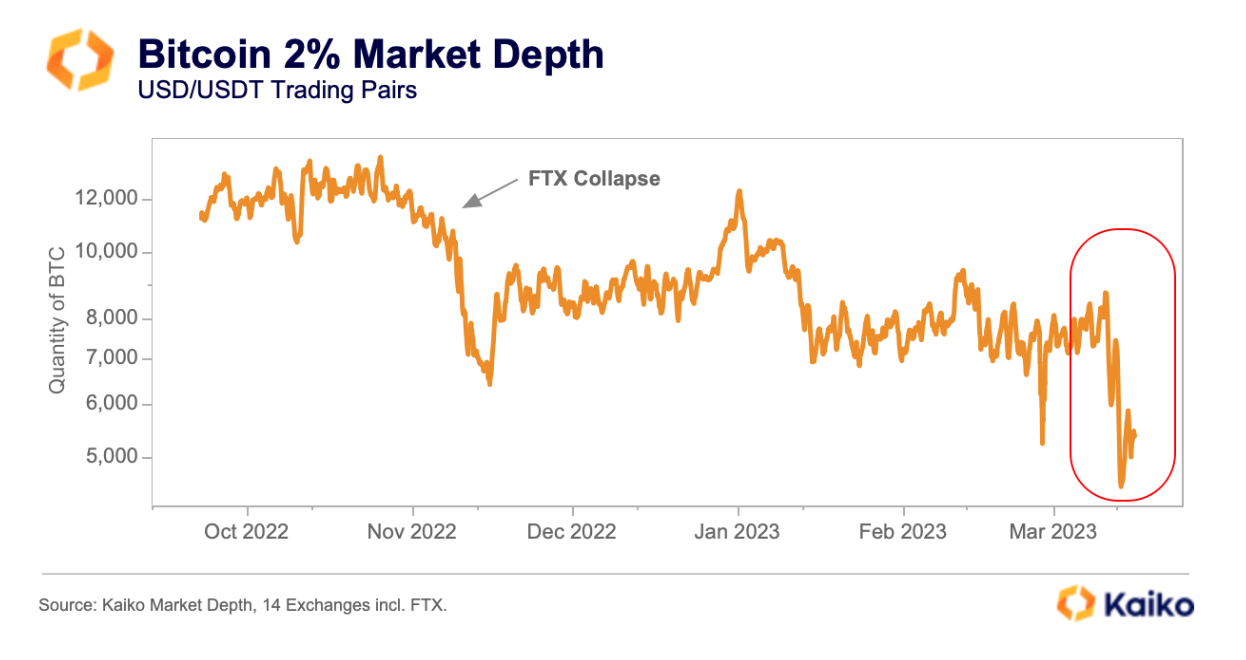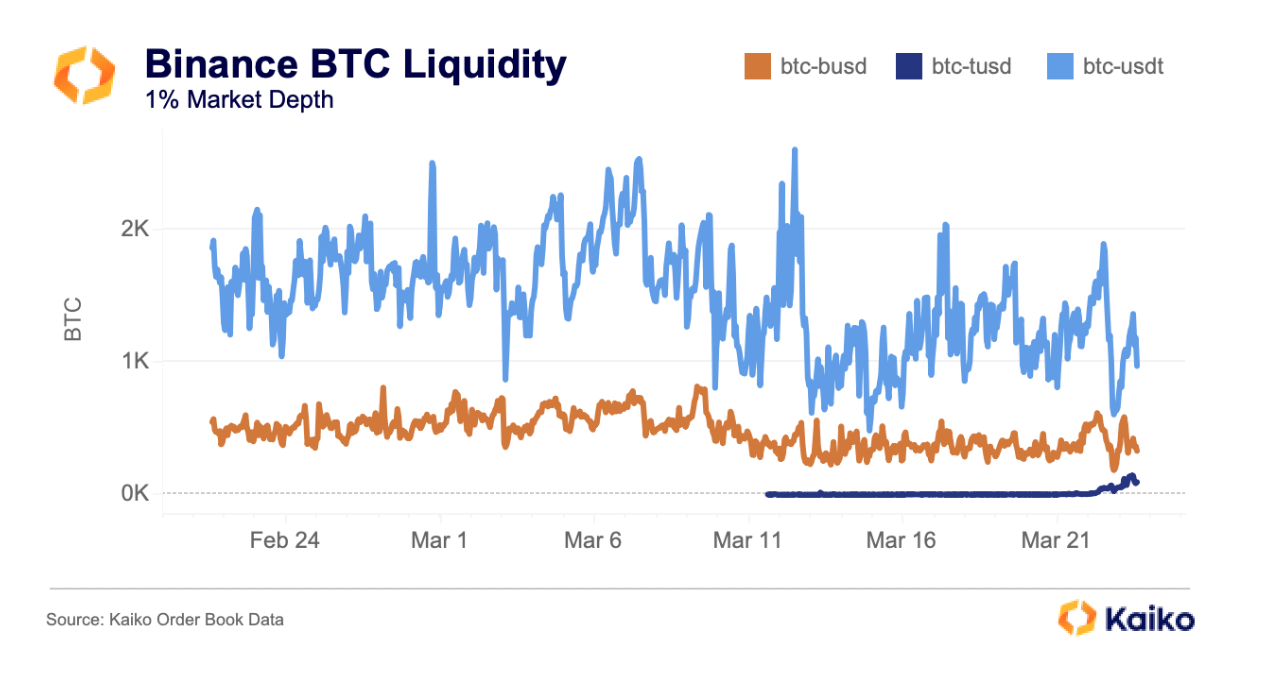Bitcoin Was a Winner During the U.S. Banking Crisis, but Illiquidity Prevents It From Being a USD Hedge
If there was a bitcoin marketing team, the last month would be as good as it gets for them.
Confidence in banks in the U.S. and Europe has been decimated and people are scrambling for an alternative to protect their dollars. Enter bitcoin (BTC), an asset that was created for entirely this purpose – a truly decentralized form of money that can’t be controlled by any entity.
Conor Ryder is a research analyst at crypto data firm Kaiko.
At first glance, the recent banking crisis seems like the perfect catalyst for a BTC price rally. However, digging a bit deeper into the reasons for the move points us in the direction of liquidity, and more specifically, lack thereof.
While the narrative makes sense and has resulted in a lot of people looking for bitcoin at the exact same time, illiquidity has almost certainly been a strong price propellant.
I’ll take a moment here to congratulate the BTC maxis. They’ve had little to cheer about recently. But this is the moment bitcoin was created for, and it’s the first time since its inception that there has been a confidence crisis in the banking system.
For the first time since 2008, people have begun to realize the U.S. dollars (USD) they hold is exposed to more risk than expected, leaving BTC looking quite attractive as a percentage of a wider portfolio.
But while these types of narratives meant to explain or predict price movements are powerful, current market structure cannot be ignored.
When liquidity is low in any financial market, volatility is high in both directions. Prices have less support on both the downside and the upside. In this instance, the narrative of bitcoin as a hedge against financial calamity gave BTC the push it needed. But there was little upside resistance to hurdle over: BTC market depth, the number of orders waiting to be filled on an order book, reached 10-month lows this week – that’s lower than levels seen since the collapse of the FTX exchange and sister firm Alameda Research.

The introduction of fees on bitcoin’s largest trading pair, BTC–USDT on Binance, has reduced trading and liquidity. (Kaiko)
The post-FTX dip is something we call the “Alameda Gap,” explaining how crypto market liquidity evaporated in the absence of one of the biggest digital asset market makers. That liquidity gap has not recovered, and continues to set new lows in the aftermath of the Silvergate and Signature banking crisis that cut off market makers from crucial USD payment rails. When market makers face this sort of unprecedented operational challenge, their reaction is to pull liquidity from order books until they receive some clarity.
Another word of warning is the reintroduction of fees on Binance’s BTC-USDT and BTC-BUSD trading pairs. We’ve noticed a sharp drop in liquidity on those pairs in the last few days as fees have been reintroduced. A fee means that market makers on those pairs can no longer justify their wide spreads (the difference in price between the bid and ask), meaning they have to offer tighter spreads which impacts their profitability.
As a result, liquidity on the BTC-USDT pair on Binance, the most liquid pair in crypto, dropped 70% overnight. The only zero-fee pair is now BTC-TUSD. If liquidity does not flow into that pair, order books could be depleted even further over the coming weeks.

It takes less and less “size” to move the price of BTC when liquidity dries up.(Kaiko)
What this all means is that it now takes less and less “size” to move the price of BTC, potentially causing volatility as more traders are able to influence prices. Thankfully for investors, the banking confidence crisis led to a surge of buy pressure, boosting the price upwards so far.
However, the lack of support to the upside also applies to the downside, meaning we need to be just as cautious of an outsized move downwards in the coming weeks. All this to say it’s too early for a bitcoin maxi victory lap.
While the rotation of capital into BTC certainly makes sense given all we’ve seen in traditional markets in the last two weeks, illiquidity arguably played the largest role in crypto’s surge.
Edited by Daniel Kuhn.
Learn more about Consensus 2023, CoinDesk’s longest-running and most influential event that brings together all sides of crypto, blockchain and Web3. Head to consensus.coindesk.com to register and buy your pass now.
DISCLOSURE
Please note that our
privacy policy,
terms of use,
cookies,
and
do not sell my personal information
has been updated
.
The leader in news and information on cryptocurrency, digital assets and the future of money, CoinDesk is a media outlet that strives for the highest journalistic standards and abides by a
strict set of editorial policies.
CoinDesk is an independent operating subsidiary of
Digital Currency Group,
which invests in
cryptocurrencies
and blockchain
startups.
As part of their compensation, certain CoinDesk employees, including editorial employees, may receive exposure to DCG equity in the form of
stock appreciation rights,
which vest over a multi-year period. CoinDesk journalists are not allowed to purchase stock outright in DCG
.
:format(jpg)/s3.amazonaws.com/arc-authors/coindesk/020bc3c4-3aa5-41d4-b740-2a1c0cacae8f.jpeg)
Conor Ryder is a research analyst at Kaiko.








